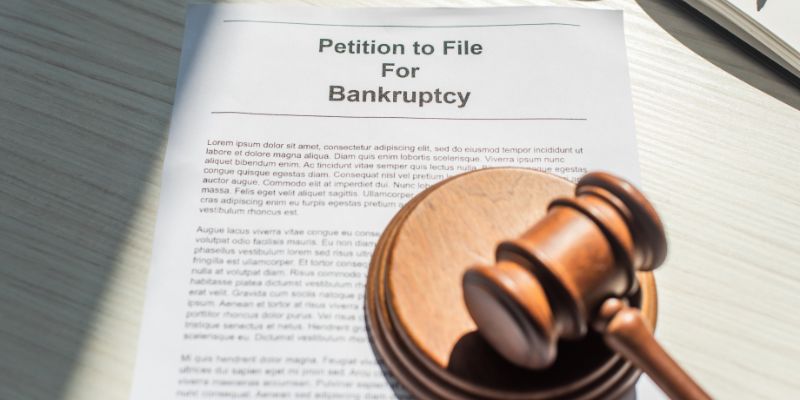Considering filing for bankruptcy can be an emotionally stressful decision as it usually follows already strenuous financial issues. What’s more, the actual process for filing can seem overwhelmingly complicated and complex. As an increasingly feasible option for providing financial stability to individuals and corporations, bankruptcy nevertheless involves navigating a complex court system with its own rules and procedures. The legal team at Steele Law Firm can provide you with guidance and experience in bankruptcy filing in the Dallas area.

The United States is broken into 94 federal judicial districts. Each one has its own U.S. district court with exclusive jurisdiction over all bankruptcy matters. The Bankruptcy Reform Act of 1978 established the current system separating the bankruptcy courts. As a result, bankruptcy cases cannot be filed in state courts.
Filing for bankruptcy involves the following persons:
When you go to file for bankruptcy, your Dallas bankruptcy lawyer will walk you through each of the following steps:
It should be noted that creditors have the right to participate in the proceedings as well. They may file their own claims to recover debts owed to them, or they may also challenge the debtor’s proposed repayment plan or pending discharge.
A: Dallas, TX, falls in the Northern District of Texas. The Northern District of Texas comprises 100 counties within the state. Nine of the twenty most populous cities in Texas are in this district, including Dallas, Fort Worth, Arlington, Lubbock, Garland, Irving, Amarillo, Grand Prairie, and Mesquite. Bankruptcy claims in this region would refer to the Dallas, TX office of the United States Trustee.
A: Federal courts have exclusive jurisdiction over bankruptcy cases, meaning that all bankruptcy proceedings will be handled by the U.S. Bankruptcy Courts rather than state courts. Due to the nature of bankruptcy claims, the courts handling these cases – which include individual, corporate, and government bankruptcies – have a unique system composed of many complicated and specific rules. Cases are handled in the bankruptcy court that falls into one of 90 different judicial districts throughout the country.
A: The Chief Judge of the United States Bankruptcy Court Northern District of Texas is Stacey G. C. Jernigan. As the chief justice in the bankruptcy court in this district, it is her responsibility to preside over all administration related to bankruptcy matters. Additionally, she provides leading opinions and hears cases. In most cases, this federal judge will have a limited role in your case, as only a bankruptcy trustee is generally present at your hearing.
A: All bankruptcies are considered public record in the United States, and all bankruptcy filings in the state are made public record by the US Bankruptcy Courts in Texas. Anyone may contact the court and verify whether you have filed bankruptcy. The most widely used system for accessing these records online is through PACER, the Public Access to Electronic Records. There is a fee and a login required. Through PACER, individuals can access records, though social security numbers are protected.
If your financial hardships are leading you to consider bankruptcy, don’t go it alone; seek the help of a qualified and experienced bankruptcy attorney today. Steele Law Firm offers comprehensive bankruptcy knowledge and understands the most effective ways to create a plan that works for your situation. Navigating the bankruptcy court system can be daunting, but with the right help, it can be done as quickly and efficiently as possible, allowing you to get back to living and rebuilding your life. For Dallas area representation and counsel in filing for bankruptcy, contact our office today.




